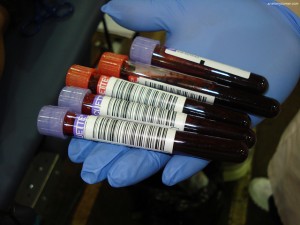
In a preliminary study, six patients in England were successfully treated by gene therapy for the blood-clotting disease hemophilia B. Researchers injected each patient with the correct form of the gene that makes the needed substance that helps blood to clot, called a clotting factor.
"I think it's a significant advancement in gene therapy and a treatment for hemophilia," said Mark Kay, Professor at Stanford's School of Medicine and a co-author of the study. "It's been over a year for some of the patients and they are continuing to make the [clotting] factor. We have to start at low doses and work our way up. We have patients that are at 10 percent level for half a year."
That 10 percent is remarkable. In hemophilia, people with a severe form of the disease have less than one percent of the clotting factor. Those with 10 percent are often able to live a normal life.
"I'm very excited about it," said Dieter Gruenert, Ph.D., Adjunct Professor at UCSF. "People have been working on this for quite some time. Hopefully this will provide an impetus for further support and funding in this country for these kinds of studies."
The field of gene therapy has long been marked by setbacks. "There was disappointment because people over-promised what was going to happen in a certain time frame," Kay explained. "Like anything it takes longer for things to come to fruition and there were side effects that actually made it very difficult."